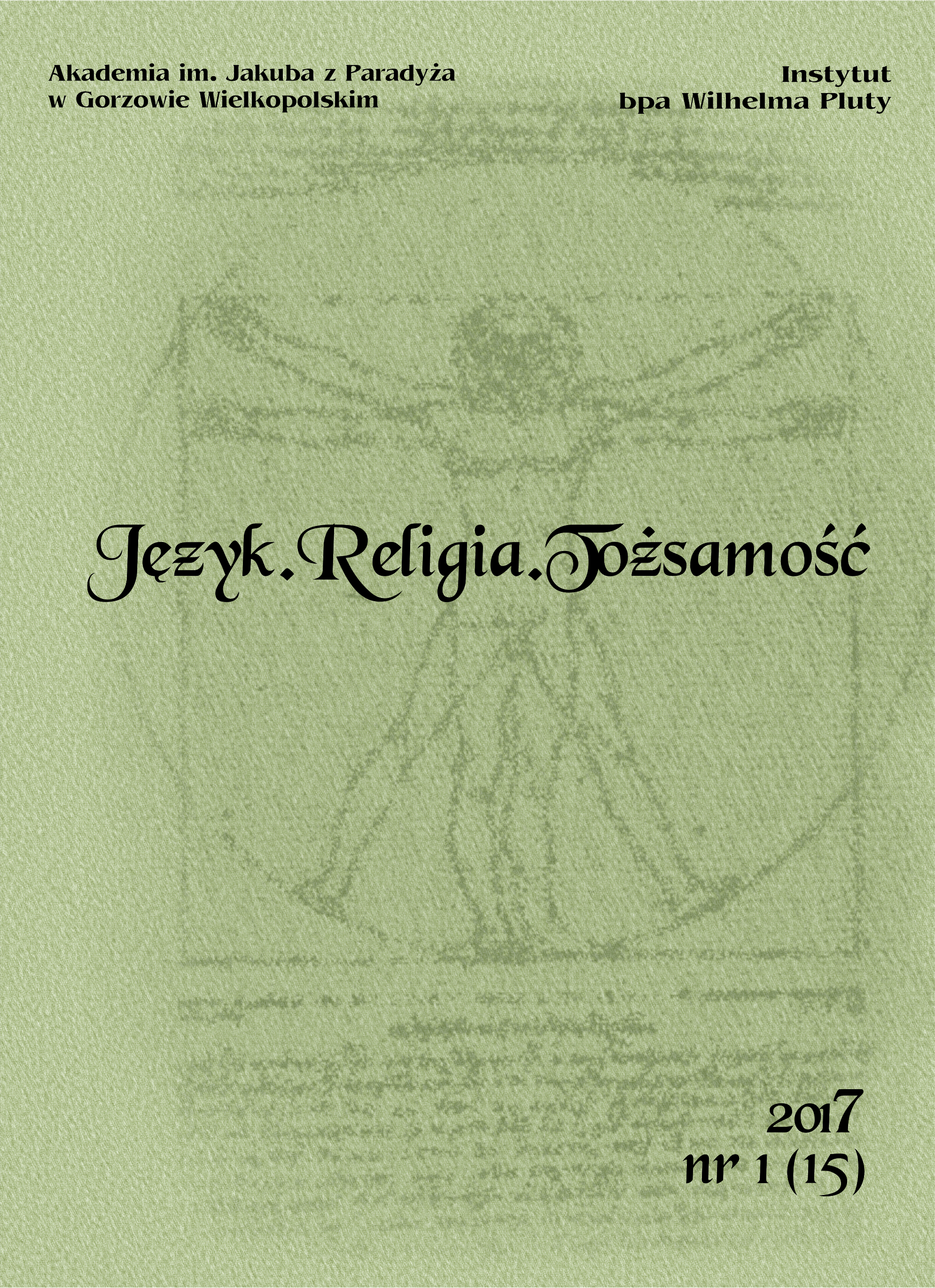Ekwiwalenty greckiego leksemu πάσχα we współczesnych przekładach Nowego Testamentu – dialog z tradycją
Equivalents of the Greek Lexeme πάσχα in the Contemporary Translations of the New Testament – Dialogue with Tradition
Author(s): Tomasz LisowskiSubject(s): Language studies, Studies of Literature
Published by: Akademia im. Jakuba z Paradyża
Keywords: lexis; theory of translation; culture
Summary/Abstract: The purpose of this analysis is to show methods of translating a Biblical exotic expression πάσχα in some selected modern translations of the New Testament, both in Catholic tradition Tyniec Bible, Poznań Bible, Warsaw-Prague Bible, Pauline Bible), as well as Protestant (Warsaw Bible, New Testament – dynamic translation), and also in the ecumenical translation of the New Testament (2001). The translators of the Tyniec Bible adopted faithfully the solution introduced by Jakub Wujek – they used a formal equivalence, more similar to the technique verbum verbo reddere. This translation technique also dominates in two subsequent twentieth-century translations of the Bible from the Catholic circle, namely, in the Poznań Bible and in the Warsaw-Prague Bible. Contrastingly, the translators of the Protestant Warsaw Bible refer to translational solutions proposed by Daniel Mikołajewski in his rendering of the Bible from 1632 – they finally decided to lexically underline the contextual meanings of the Greek πάσχα, trying to realize the very essence of the formula sensum sensui reddere. This, in turn, imposed on them the necessity to performa semantic interpretation of the original text. Similarly acted the translators of a dynamic translation of the New Testament and the ecumenical translation. Also the translators of the Pauline Bible, the most recent entire translation completed in the Catholic circles, refer to this technique. This fact clearly supports the contention that the tendency to lexically differentiate the meanings of the Greek πάσχα in the contemporary Polish translations, whose aim is to make accessible to modern readers the sense of the Biblical message, is primarily of philological nature and not religious.
Journal: Język. Religia. Tożsamość
- Issue Year: 15/2017
- Issue No: 1
- Page Range: 163-173
- Page Count: 11
- Language: Polish

